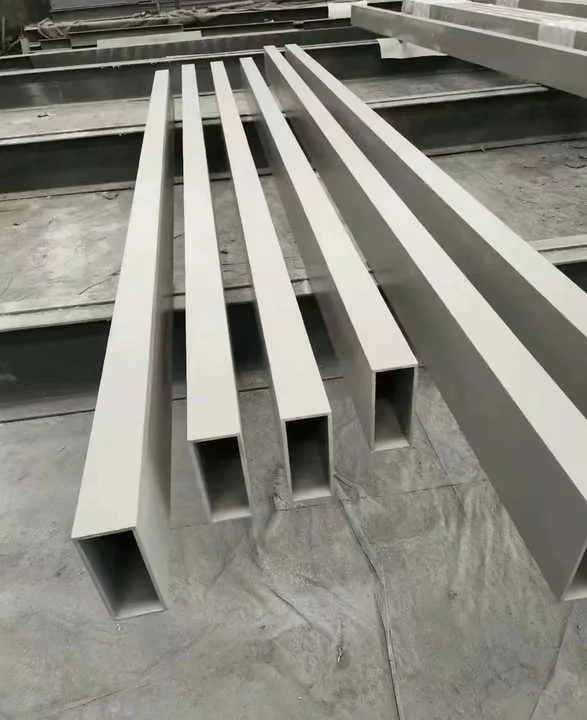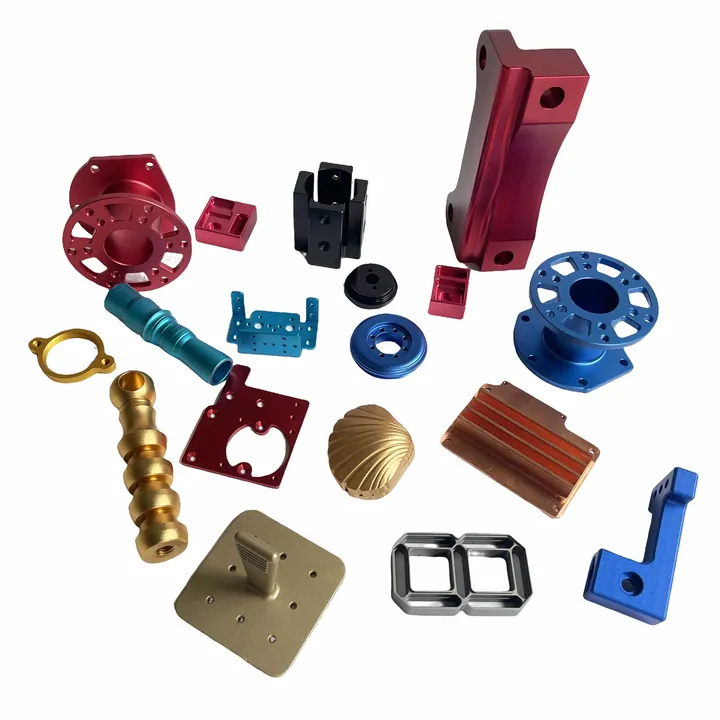Как предотвратить гальваническую коррозию между алюминием и нержавеющей сталью?

Когда алюминий и нержавеющая сталь соприкасаются, может незаметно начаться коррозия. Если ее не остановить, она повреждает детали, ослабляет соединения и увеличивает расходы на обслуживание.
Вы можете предотвратить гальваническую коррозию между алюминием и нержавеющей сталью, изолировав металлы с помощью непроводящих материалов, покрытий или правильной конструкции.
Непродуманное смешивание металлов приводит к дорогостоящему ремонту. Но если принять правильные меры, можно безопасно использовать оба материала вместе. Давайте узнаем, как это сделать.
Какие материалы могут изолировать алюминий от нержавеющей стали?
Многие инженеры упускают этот шаг из виду. Но правильная изоляция - самый эффективный способ остановить гальваническую коррозию между алюминием и нержавеющей сталью.
Изолировать алюминий от нержавеющей стали можно с помощью пластиковых шайб, резиновых прокладок, нейлоновых втулок или окрашенных поверхностей, которые прерывают электрический путь.

Гальваническая коррозия возникает, когда два разных металла соприкасаются в присутствии электролита, например воды. Один металл становится анодом (корродирует), другой - катодом. В этой паре анодом является алюминий, а значит, он будет разрушаться быстрее.
Распространенные изоляционные материалы
| Изоляционный материал | Где использовать | Примечания |
|---|---|---|
| Нейлоновые шайбы | Между болтами и алюминиевыми поверхностями | Недорогой, простой в установке |
| Резиновые прокладки | Между фланцами, панелями | Также обеспечивает демпфирование вибраций |
| Пластиковые гильзы | Вокруг болтов или внутри отверстий | Полная изоляция болтов от конструкции |
| Порошковые покрытия | На алюминиевых деталях | Избегает прямого контакта, нуждается в осмотре |
| Волокнистые или войлочные прокладки | Во временных установках | Не подходит для зон с высокой нагрузкой |
Эти материалы блокируют электрический ток. Нет тока - нет гальванической реакции. Всегда обеспечивайте полное разделение, а не только защиту на уровне поверхности.
Для возникновения гальванической коррозии необходим контакт металла с электролитом.Правда
Для возникновения гальванической коррозии необходимы как электрический контакт, так и присутствие влаги или электролита.
Простое размещение алюминия рядом с нержавеющей сталью без контакта приведет к коррозии.Ложь
Для возникновения коррозии необходим прямой контакт с металлом и влага, чтобы вызвать гальваническую реакцию.
Предотвращают ли диэлектрические покрытия гальваническую коррозию?
Быстрое покрытие кажется простым, но действительно ли оно останавливает коррозию между разнородными металлами?
Да, диэлектрические покрытия предотвращают гальваническую коррозию, создавая изолирующий слой, который блокирует электрический поток между алюминием и нержавеющей сталью.

Диэлектрические покрытия - это непроводящие краски или пленки. Они действуют как барьеры между двумя различными металлами. Эти покрытия останавливают поток электронов, что прекращает коррозионную реакцию.
К распространенным типам относятся эпоксидные, полиуретановые и порошковые покрытия. Они особенно полезны в морских условиях или на открытом воздухе, где постоянно присутствует влага.
Виды покрытий, которые помогают предотвратить гальваническую коррозию
| Тип покрытия | Преимущества | Продолжительность жизни (расчетная) |
|---|---|---|
| Эпоксидная смола | Прочный, химически стойкий | 8-10 лет |
| Полиуретан | Устойчивость к ультрафиолетовому излучению, гибкость | 6-8 лет |
| Порошковое покрытие | Прочность, широкий выбор цветов | 10-15 лет |
| Грунтовка с содержанием цинка | Защитное покрытие для стали | 5-8 лет |
Однако покрытия должны быть сплошными. Если покрытие поцарапается или сотрется, под ним может начаться коррозия. Всегда регулярно осматривайте детали с покрытием.
Диэлектрические покрытия эффективны, так как препятствуют контакту металла с металлом и протеканию тока.Правда
Они изолируют металлы, прерывая электрический путь, необходимый для возникновения коррозии.
Диэлектрические покрытия работают даже при нанесении только на один из двух металлов.Ложь
Чтобы полностью остановить гальваническую коррозию, обе металлические поверхности должны быть изолированы. Одностороннее покрытие все еще позволяет протекать току.
Как выбрать крепеж, чтобы избежать коррозии?
Крепеж часто игнорируют, однако именно он чаще всего выходит из строя в конструкциях из смешанных металлов.
Чтобы избежать коррозии, выбирайте крепежные элементы из совместимых металлов или изолируйте их шайбами, втулками или специальными покрытиями.

Использование болтов из нержавеющей стали на алюминии звучит убедительно, но при этом образуется гальваническая пара. Со временем алюминий корродирует вокруг крепежа. Это ослабляет соединение и затрудняет демонтаж.
Рекомендуемые варианты крепежа для алюминиевых конструкций
| Тип крепежа | Примечания | Риск коррозии |
|---|---|---|
| Алюминиевые крепежи | Тот же металл, без гальванического эффекта | Очень низкий |
| Нержавеющая сталь с покрытием | С изоляцией или покрытием | Низкий |
| Оцинкованная сталь | Жертвенная защита, изнашивается со временем | Умеренный |
| Нержавеющая сталь + нейлоновые шайбы | Прочный и изолированный | Низкий |
Если вам необходимо использовать болты из нержавеющей стали, сочетайте их с пластиковые или нейлоновые шайбы и втулки. Они предотвращают прямой контакт. Также при сборке следует нанести антикоррозийную пасту или смазку.
Использование болтов из нержавеющей стали на алюминии всегда предотвращает коррозию благодаря их прочности.Ложь
Нержавеющие болты могут вызвать ускоренную коррозию алюминия из-за гальванической реакции, если они не изолированы.
Алюминиевые крепежные элементы - лучший выбор, чтобы избежать гальванической коррозии с алюминиевыми деталями.Правда
Крепеж из одного металла позволяет избежать гальванической разности потенциалов, вызывающей коррозию.
Необходима ли электрическая изоляция для предотвращения реакций?
Дело не только в металлах, но и в том, как электроны перемещаются между ними. Без полной цепи коррозия не начнется.
Да, электрическая изоляция необходима для предотвращения гальванической коррозии, поскольку она разрывает цепь между разнородными металлами.

Гальваническая коррозия действует как крошечная батарейка. Пара металлов создает напряжение. Влага или другой электролит соединяет их. Электроны перетекают, и алюминий растворяется.
Вы можете блокировать это, прервав путь:
- Используйте пластиковые прокладки или втулки.
- Нанесите покрытие на всю поверхность.
- Избегайте конструктивных ловушек, в которых скапливается вода.
- Используйте изолирующие кронштейны или крепления.
Контрольный список по электроизоляции
| Шаг действий | Назначение |
|---|---|
| Добавьте резиновые или пластиковые шайбы | Предотвращает прямой электрический контакт |
| Окраска контактных поверхностей | Изолирует металл друг от друга |
| Проектирование дренажа | Сохраняет суставы сухими и не содержит электролитов |
| Используйте диэлектрическую пасту | Блокирует попадание влаги в резьбу крепежа |
Даже заземление системы не поможет, если два разнородных металла непосредственно соприкасаются. Изоляция должна быть физической и полной.
Электрическая изоляция предотвращает коррозию, останавливая поток электронов между металлами.Правда
Без проводящего пути гальваническая коррозия не может возникнуть даже при наличии влаги.
Заземления металлической конструкции достаточно, чтобы остановить гальваническую коррозию.Ложь
Заземление не предотвращает гальваническую коррозию; необходимо разорвать цепь с помощью изоляции.
Заключение
Гальваническую коррозию между алюминием и нержавеющей сталью можно предотвратить. Изолируйте металлы, покройте поверхности, выберите подходящие крепежи и остановите ток с помощью надлежащей изоляции. При соблюдении правильных мер вы сможете безопасно и эффективно соединять эти материалы.




